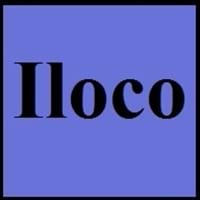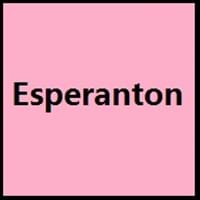Ilocano vs Esperanto
Countries
Philippines
East Asia, European Union, South America
National Language
Philippines
East Asia, European Union
Second Language
Not spoken in any of the countries
Central Europe, East Asia, Eastern Europe, South America
Speaking Continents
Asia
Asia, Europe, South America
Minority Language
Not spoken in any of the countries
Not spoken in any of the countries
Regulated By
Commission on the Filipino Language
Akademio de Esperanto
Interesting Facts
- Ilocano was originally written with Baybayin syllabary, then gradually it was replaced by Latin alphabet.
- Northwest Luzon is the original Ilocano homeland.
- The most widely spoken constructed language in the world is Esperanto.
- Esperanto is an artificial international language.
Similar To
Tagalog, Indonesian and Malaysian Languages
Not Available
Derived From
Not Available
Not Available
Alphabets in
Ilocano-Alphabets.jpg#200
Esperanto-Alphabets.jpg#200
Scripts
Ilokano Braille, Latin
Latin
Writing Direction
Not Available
Not Available
Time Taken to Learn
Not Available
Thank You
Agyamanak
Dankon
How Are You?
Kumusta?
Kiel vi sanas?
Good Night
Naimbag a rabii
Bonan nokton
Good Evening
Naimbag a sardam
Bonan vesperon
Good Afternoon
Naimbag a malem
Bonan posttagmezon
Good Morning
Naimbag a bigat
Bonan matenon
Please
Not available
Mi petas
Sorry
Agpakawanak
Mi bedaŭras!
I Love You
Ayayatenka
Mi amas vin
Excuse Me
Maawan-dayawen
Pardonu!
Dialect 1
Balangao
Not present
Where They Speak
Philippines
Not present
How Many People Speak
Not Available
Dialect 2
Bontoc
Not present
Where They Speak
Philippines
Not present
How Many People Speak
Not Available
Dialect 3
Not present
Not present
Where They Speak
Not present
Not present
Speaking Population
Not Available
Second Language Speakers
Not Available
Native Name
ilokano
Esperanto
Alternative Names
Ilokano, Iloko
Eo, La Lingvo Internacia
French Name
ilocano
espéranto
German Name
Ilokano-Sprache
Esperanto
Pronunciation
Not Available
[espeˈranto]
Ethnicity
Ilocano people
Not Available
Language Family
Austronesian Family
Indo-European Family
Subgroup
Not Available
Not Available
Branch
Not Available
Not Available
Early Forms
No early forms
Proto-Esperanto
Standard Forms
Modern Ilocano
Esperanto
Language Position
Not Available
Signed Forms
Not Available
Signuno
Scope
Individual
Individual
ISO 639 1
No data available
eo
ISO 639 6
Not Available
Not Available
Glottocode
ilok1237
espe1235
Linguasphere
31-CBA-a
51-AAB-da
Language Type
Living
Constructed
Language Linguistic Typology
Not Available
Not Available
Language Morphological Typology
Not Available
Agglutinative
Ilocano and Esperanto Language History
Comparison of Ilocano vs Esperanto language history gives us differences between origin of Ilocano and Esperanto language. History of Ilocano language states that this language originated in 18th Century whereas history of Esperanto language states that this language originated in 1887. Family of the language also forms a part of history of that language. More on language families of these languages can be found out on Ilocano and Esperanto Language History.
Ilocano and Esperanto Greetings
People around the world use different languages to interact with each other. Even if we cannot communicate fluently in any language, it will always be beneficial to know about some of the common greetings or phrases from that language. This is where Ilocano and Esperanto greetings helps you to understand basic phrases in Ilocano and Esperanto language. Ilocano word for "Hello" is Kablaaw or Esperanto word for "Thank You" is Dankon. Find more of such common Ilocano Greetings and Esperanto Greetings. These greetings will help you to be more confident when conversing with natives that speak these languages.
Ilocano vs Esperanto Difficulty
The Ilocano vs Esperanto difficulty level basically depends on the number of Ilocano Alphabets and Esperanto Alphabets. Also the number of vowels and consonants in the language plays an important role in deciding the difficulty level of that language. The important points to be considered when we compare Ilocano and Esperanto are the origin, speaking countries, language family, different greetings, speaking population of these languages. Want to know in Ilocano and Esperanto, which language is harder to learn? Time required to learn Ilocano is Not Available while to learn Esperanto time required is 6 weeks.





